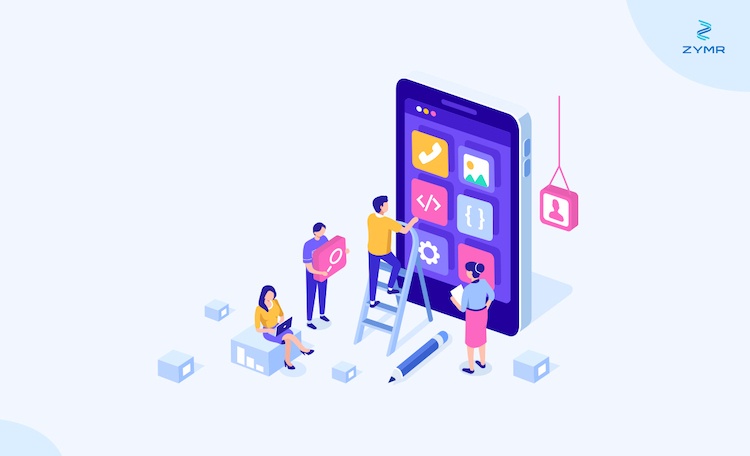
Beginning your app development project by gathering an understanding of market needs and user base can help you identify core features and prioritize them based on user feedback.
Make sure that the app offers high performance and reliability - users will quickly uninstall an app that is slow or unstable.
1. User Experience
Building a mobile app takes both time and resources; companies typically need investors or loans in order to fund this protracted development process that could span months or even years.
Businesses should ensure their apps deliver an outstanding user experience (UX), in order to increase downloads and retention rates. A poor UX can result in users abandoning it for other apps - something which will have a serious impact on business revenue. Conducting market research to understand users' needs will allow developers to craft apps that address those requirements more accurately.
2. Design
Design of mobile apps can make or break their user experience. Users expect an appealing, straightforward program with clear guidelines to adhere to on both IOS and Android operating systems.
Reduce page-load times and response times of your app in order to keep users satisfied and ensure their return. Furthermore, use fonts with easy reading abilities as this will help your app appeal to a broader audience.
3. Functionality
App performance and experience are two essential considerations in mobile app design. Product teams should make sure that their apps are easy to use, customizable and responsive while not overburdening them with features that do not contribute to its primary purpose.
Mobile applications that interact with other programs can vastly extend their functionality. Consider how an app could integrate with a phone's camera or mapping program; testing these integrations carefully is crucial, as is developing an effective monetization plan early on.
4. Performance
Your app likely stores some kind of information in its back end; by encrypting this data, it could help keep attackers out.
Consider how your app will be optimized for each platform; apps designed for iPhones might require simpler graphics that will ensure fast performance while iPad apps may utilize more complex images on larger displays.
Gaining and acting on user feedback can also enhance the performance of your app. Users don't appreciate slow loading times; they want an experience that's smooth and efficient.
5. Security
Mobile applications must be designed to ensure user security, including protecting sensitive personal information from cybercrime and safeguarding its source code as well as conducting penetration testing.
Users should also be educated on app security through various methods, including real-time advice and an informative FAQ section. Email newsletters may also be an effective means of disseminating educational material to your users.
Encrypting data helps protect sensitive information even if hackers gain access to the backend, and using only approved APIs helps minimize risks of unwittingly giving privileges to a threat actor.
6. Integration
Before your final version of your app is released to users, it must first undergo rigorous testing in order to meet user requirements. This crucial step helps identify any potential issues or potential mishaps so necessary changes can be implemented immediately to address them.
Research the market for apps created by your competitors. This will allow you to identify their strategies and mistakes that you can implement into your own app, while user reviews provide insight into what users need from an app like yours.
7. App Store Optimization
App store optimization is a critical component of getting your app noticed by potential users. By optimizing its description, titles, keywords, and search engine snippets you can increase its visibility and encourage more downloads.
Mobile app development takes time and resources. Planning ahead can help ensure that you stay within budget while being ready to launch when its completion comes around.
8. Marketing
Marketing mobile apps is an ongoing process of acquiring users, engaging them and maintaining retention rates. It includes various techniques such as app store optimization, influencer marketing and cross-promotions.
Mobile app users expect efficiency from the apps they download, with applications that consume too much data or drain their battery being seen as undesirable by many users.
To avoid this pitfall, it's essential to place emphasis on user experience. By understanding your target audience's needs and requirements, you can develop core app features which address specific points of pain.
9. Budget
App development can be an expensive undertaking. Before initiating any mobile app project, it is wise to carefully assess both costs and timeline.
As an effective starting point, it is wise to conduct research into similar apps already on the market and their features. Utilizing existing cloud services such as analytical servers, push notification services and authentication servers may help minimize costs of app development.
Considerations should also be given to how and who will use the app, which will influence its monetization strategy and budgetary costs.
10. Time
Time taken to build a mobile app depends on various factors; complex apps with many functions will take longer.
Stakeholder management can have an enormous effect on app development. Coordinating meetings, providing regular updates and soliciting feedback from stakeholders is often time consuming and cumbersome.
Backend integration can also prolong mobile app development time, as teams must select an ideal back end platform that supports all of their desired functions. This may require extensive research and testing before reaching a decision.

Post a Comment